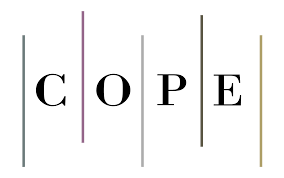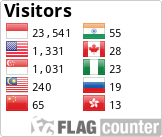Reviewer Guidelines
Reviewer Guidelines
Welcome, and thank you for agreeing to serve as a reviewer for our journal. Your review is crucial in maintaining the scholarly quality of our publications. These guidelines aim to provide a clear framework for the review process and expectations.
The Review Process in OJS
-
Assignment Acceptance: You will receive a notification via the OJS system informing you that a new manuscript requires your attention.
-
Initial Decision: Upon receiving the manuscript, please promptly check the topic's relevance to your expertise. If it is not relevant or you have a conflict of interest, please decline the assignment as soon as possible through the system.
-
Review: Download the manuscript (usually in PDF or DOCX format) via your reviewer dashboard in OJS. Conduct a comprehensive review.
-
Submission of Decision: Once finished, enter your final recommendation (Accept, Minor Revision, Major Revision, or Reject) and write your review in the designated section in OJS. Ensure your comments are structured (see "Structure of the Review" section).
-
Deadline: Please complete your review within [Specify Deadline, e.g., 14 or 21 days] from the assignment date. If you require an extension, please contact the Editor via the OJS system.
Manuscript Assessment Aspects
Reviewers are expected to evaluate the manuscript from two main perspectives: Substance/Scholarly Quality and Format/Technical Suitability.
I. Substance and Methodological Quality
| Criterion | Assessment Description |
| Originality & Significance | How novel is this research contribution? Are the findings important and relevant to the field? |
| Literature Review | Is the literature review comprehensive, up-to-date, and relevant? Is the research position clearly situated within existing literature? |
| Methodology | Is the research design, data collection method, and statistical/qualitative analysis described clearly and replicably? Is the chosen method appropriate for answering the research question? |
| Results and Discussion | Are the results presented logically? Does the discussion address the findings in the context of existing literature? Is there any over-interpretation of results? |
| Conclusion | Are the conclusions directly supported by the research findings? Are limitations and implications discussed? |
II. Technical and Language Quality ✍️
| Criterion | Assessment Description |
| Structure and Flow | Does the manuscript have a coherent logical flow from introduction to conclusion? |
| Clarity and Writing Style | Is the language used clear, concise, and free from grammatical/spelling errors? (For non-Indonesian manuscripts, check translation quality). |
| Citation and References | Are all in-text citations present in the reference list, and vice versa? Is the citation style (APA) consistent and in line with journal guidelines? |
| Tables and Figures | Are tables and figures clearly labeled, do they have informative captions, and do they support the main text? |
Structure of Your Review
Please provide your feedback in two distinct sections in the OJS comment box:
-
Comments for the Editor (Confidential): This section will only be seen by the Editor. Use this section to provide your final recommendation (Accept, Minor Revision, Major Revision, or Reject) and a brief justification for your recommendation. You may also mention any potential conflicts of interest here if they haven't already been flagged.
-
Comments for the Author (Public/Visible): This section will be sent directly to the authors. This review must be constructive, specific, polite, and balanced.
-
Opening: Start with general appreciation for the authors' effort.
-
Body: Present improvement points based on the criteria above. Use numbering for each point so authors can easily track and respond to them.
-
Closing: Conclude with positive encouragement.
-

 This journal is a member of and subscribes to the principles of the Committee on Publication Ethics (COPE)
This journal is a member of and subscribes to the principles of the Committee on Publication Ethics (COPE)








